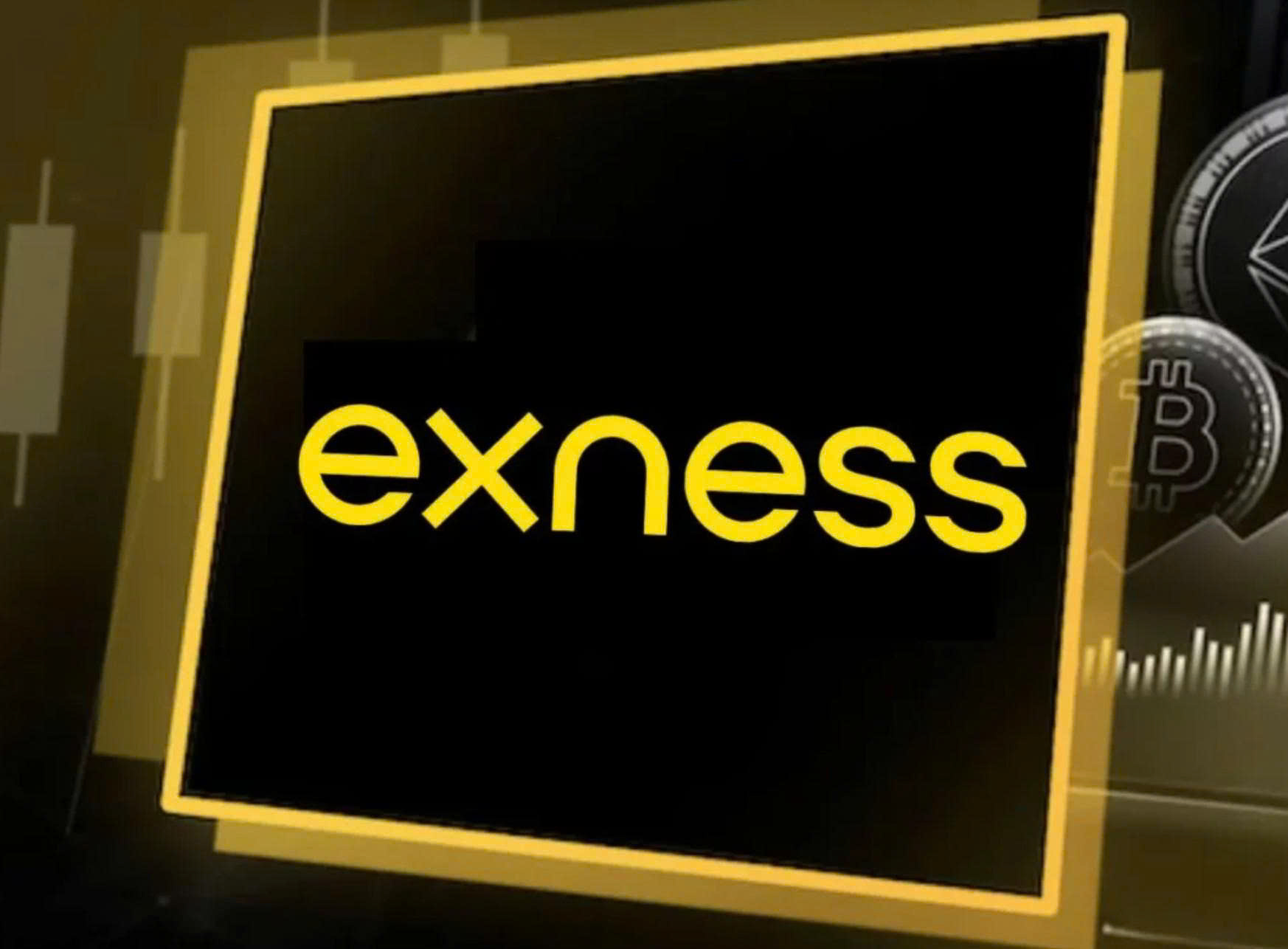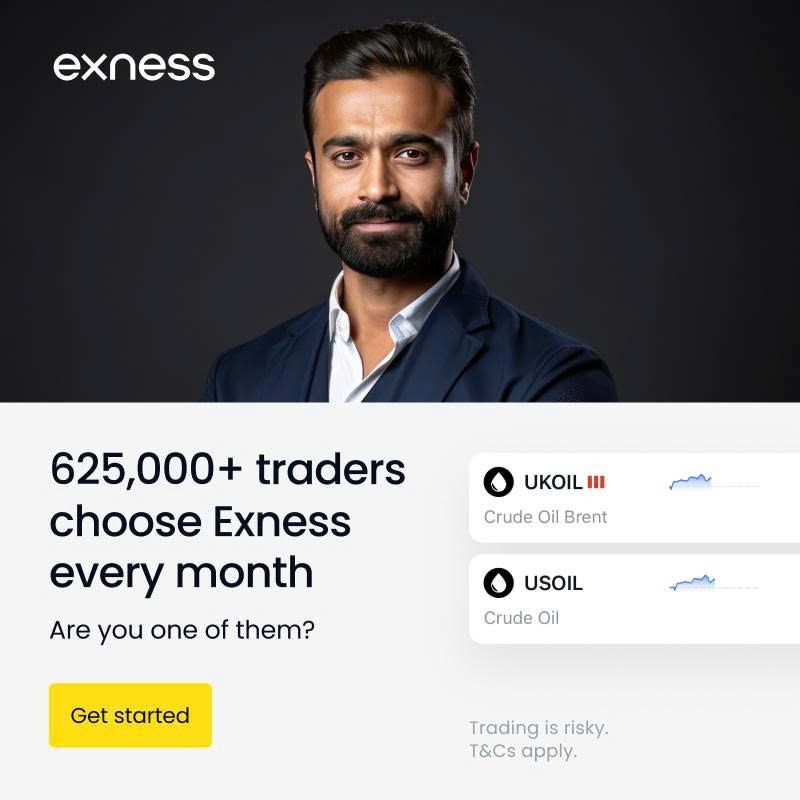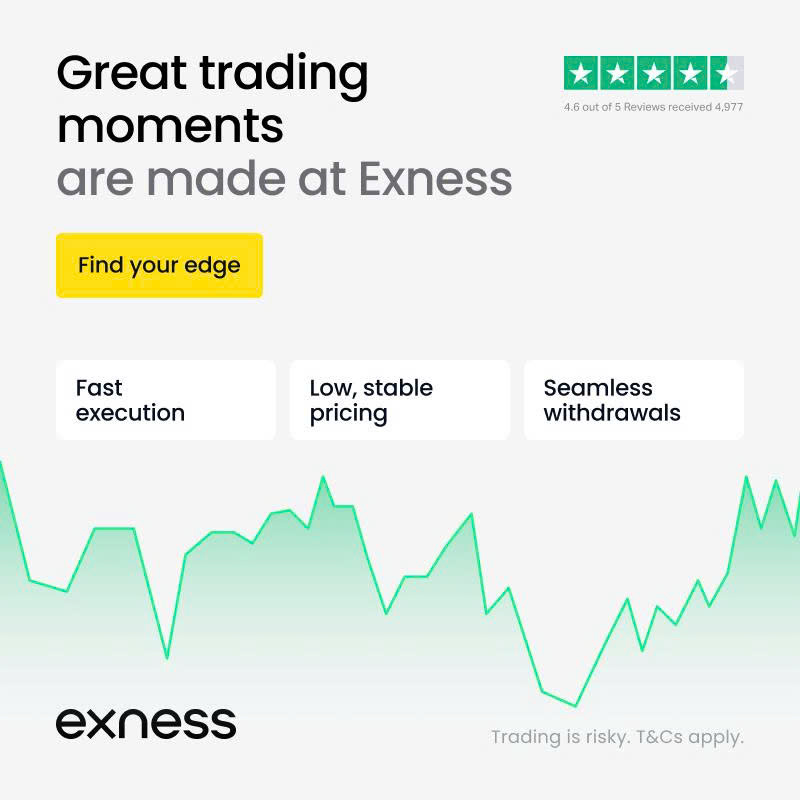
8 minute read
Exness vs FxPro: Which Forex Broker Is Right for You in 2025?
from Exness, FxPro
Hey there, forex trader! If you’re stuck choosing between Exness vs FxPro, you’re not alone. Both are heavyweights in the forex world, offering solid platforms, competitive spreads, and a ton of trading tools. But which one’s the better fit for you? In this article, I’ll break down the key differences—spreads, fees, platforms, account types, and more—so you can make an informed decision. Let’s dive right in!

✅ Trade with Exness now: Open An Account or Visit Brokers 👈
The Quick Verdict
If you want the short version: Exness is awesome for low-cost trading with super-tight spreads, especially if you’re into high-leverage scalping or trading exotic pairs. FxPro, on the other hand, shines for its diverse platform options and robust regulatory framework, making it ideal for traders who value flexibility and trust. But there’s a lot more to unpack, so stick with me as we compare these two brokers head-to-head.
1. Company Background and Trustworthiness
First things first, let’s talk about credibility. You don’t want to trust your hard-earned money to a shady broker, right?
Exness: Founded in 2008, Exness is headquartered in Cyprus and regulated by top-tier authorities like the FCA (UK), CySEC (Cyprus), and FSA (Seychelles). With over 700,000 active clients and a monthly trading volume exceeding $4 trillion (yep, trillion!), Exness has built a solid reputation for transparency and reliability. They’re known for fast withdrawals and no-nonsense execution.
FxPro: Also launched in 2008, FxPro is another Cyprus-based broker with a strong regulatory lineup, including FCA, CySEC, and SCB (Bahamas). They serve over 1.8 million clients across 170+ countries. FxPro prides itself on its “No Dealing Desk” (NDD) model, ensuring your trades aren’t manipulated. They’ve won multiple awards for customer service and platform quality.
Who wins? It’s a tie. Both brokers are tightly regulated and trusted by millions. If you’re in a heavily regulated region like the EU or UK, either is a safe bet. Exness might edge out slightly for its massive trading volume, but FxPro’s awards give it serious street cred.
2. Trading Platforms: MT4, MT5, or Something Else?
Your trading platform is your cockpit, so it’s gotta be smooth and intuitive.
Exness: Offers MetaTrader 4 (MT4), MetaTrader 5 (MT5), and their proprietary Exness Terminal (a web-based platform). MT4 and MT5 are industry standards, packed with tools for charting, automation (EAs), and technical analysis. The Exness Terminal is great for beginners or traders who want a lightweight, browser-based option. They also have a solid mobile app for trading on the go.
FxPro: Takes it up a notch with MT4, MT5, cTrader, and their own FxPro Edge platform. cTrader is a favorite for advanced traders due to its sleek interface and Level II pricing for better market depth. FxPro Edge is a customizable, web-based platform that’s perfect for those who want something different from MetaTrader. Their mobile app is also top-notch.
Who wins? FxPro, hands down. The addition of cTrader and FxPro Edge gives it more variety, catering to both newbies and pros who want advanced tools. Exness is solid, but its platform lineup feels a bit more standard.
3. Spreads and Fees: Where’s the Value?
Nobody wants to bleed cash on fees, so let’s see how these brokers stack up.
Exness: Known for ultra-competitive spreads, especially on their Zero and Raw Spread accounts. For example, EUR/USD spreads can drop to 0.0 pips on the Zero account, though you’ll pay a commission (around $3.5 per lot per side). Standard accounts have no commission but slightly wider spreads (around 0.7-1.0 pips for EUR/USD). Exness also has no inactivity fees and free withdrawals, which is a big plus.
FxPro: Offers tight spreads too, but they’re not as razor-sharp as Exness. On their MT4 accounts, EUR/USD spreads average 1.2 pips with no commission on standard accounts. cTrader accounts have spreads as low as 0.3 pips but come with a commission ($4.5 per lot per side). FxPro charges an inactivity fee of $15/month after 12 months of no trading, which could sting if you take a break.
Who wins? Exness takes the crown here. Their spreads are tighter, commissions are lower, and the lack of inactivity fees makes them more cost-effective for most traders.

✅ Trade with Exness now: Open An Account or Visit Brokers 👈
4. Account Types: Flexibility for Every Trader
Whether you’re a beginner or a high-roller, account options matter.
Exness: Offers a range of accounts to suit different styles:
Standard: No commission, higher spreads, great for beginners.
Standard Cent: Perfect for newbies testing the waters with micro-lots.
Raw Spread: Ultra-low spreads with a small commission.
Zero: Near-zero spreads on major pairs, ideal for scalpers.
Pro: Tailored for experienced traders with instant execution.
Exness also supports swap-free (Islamic) accounts and offers leverage up to 1:2000 (or unlimited in some regions, which is wild but risky).
FxPro: Keeps it simpler with three main account types:
MT4/MT5 Standard: No commission, wider spreads.
cTrader: Low spreads with commissions, best for advanced traders.
VIP: For high-volume traders with custom perks like lower fees.
FxPro’s maximum leverage is 1:500 (or lower in regulated regions like the EU), which is still generous but not as crazy as Exness.
Who wins? Exness, barely. Their variety of accounts, especially the cent account for beginners and high-leverage options for risk-takers, gives them an edge. FxPro’s accounts are solid but less diverse.
5. Leverage and Margin: How Much Risk Can You Take?
Leverage can amplify your profits—or your losses. Let’s compare.
Exness: Offers some of the highest leverage in the industry, up to 1:2000 or even unlimited for certain accounts in less-regulated regions. This is a scalper’s dream but a rookie’s nightmare if you’re not careful. Margin requirements are low, and they provide negative balance protection to prevent you from owing more than your deposit.
FxPro: Caps leverage at 1:500 in most regions, with tighter restrictions in places like the EU (1:30 for retail clients). They also offer negative balance protection and clear margin call policies. FxPro’s approach feels safer for conservative traders.
Who wins? Depends on you. If you’re a high-risk trader or scalper, Exness’s insane leverage is a game-changer. For cautious traders, FxPro’s lower leverage and strict regulations feel more secure.
6. Asset Selection: What Can You Trade?
More options = more opportunities, right?
Exness: Offers 120+ forex pairs, including exotic ones, plus CFDs on stocks, indices, commodities, and cryptocurrencies. Their crypto trading (e.g., Bitcoin, Ethereum) is available 24/7, which is a big deal for crypto fans.
FxPro: Covers 70+ forex pairs, CFDs on stocks, indices, commodities, and a smaller crypto selection. They focus more on forex and traditional CFDs, so their crypto offerings aren’t as robust.
Who wins? Exness, slightly. Their broader forex pair selection and 24/7 crypto trading give them a slight edge, especially if you love exotic pairs or crypto.
7. Deposits, Withdrawals, and Customer Support
Nothing’s worse than a broker that makes it hard to get your money.
Exness: Supports a wide range of payment methods, including bank cards, e-wallets (Skrill, Neteller), and crypto. Withdrawals are lightning-fast, often processed in minutes (seriously, they’re obsessed with speed). Their 24/7 customer support is available via live chat, email, and phone in multiple languages.
FxPro: Also offers bank cards, e-wallets, and bank transfers, but crypto deposits aren’t supported. Withdrawals typically take 1-2 business days, which is slower than Exness. Their 24/7 support is solid, with live chat and email, and they’re known for quick responses.
Who wins? Exness. Faster withdrawals and crypto payment options make them more convenient, especially for tech-savvy traders.
8. Education and Tools: Helping You Grow
New to trading? Or just want to sharpen your skills?
Exness: Provides a decent range of educational resources, including webinars, tutorials, and market analysis. Their Exness Academy is great for beginners, covering basics like technical analysis and risk management. They also offer tools like an economic calendar and VPS hosting for algo traders.
FxPro: Goes all-in on education with FxPro Trading Academy, offering videos, eBooks, and daily market analysis. Their trading calculators (pip, margin, etc.) and VPS service are top-tier. FxPro also provides a demo account with virtual funds to practice.
Who wins? FxPro. Their educational resources are more comprehensive, and their trading tools feel a bit more polished.
Who Should Choose Exness?
Exness is your go-to if you:
Want ultra-low spreads and minimal fees.
Love high-leverage trading or scalping.
Trade exotic pairs or crypto 24/7.
Need fast withdrawals and flexible payment options.
Who Should Choose FxPro?
FxPro is perfect if you:
Value platform variety (especially cTrader or FxPro Edge).
Prefer a broker with strong regulatory oversight and awards.
Want comprehensive education and advanced tools.
Don’t mind slightly higher fees for premium features.
Final Thoughts
So, Exness vs FxPro? If you’re all about low costs vs high-speed execution, Exness is tough to beat. Their spreads, leverage, and withdrawal speeds are a trader’s dream. But if you want more platforms, better education, and a broker with a polished reputation, FxPro might be your match.
✅ Trade with Exness now: Open An Account or Visit Brokers 👈
Read more:

